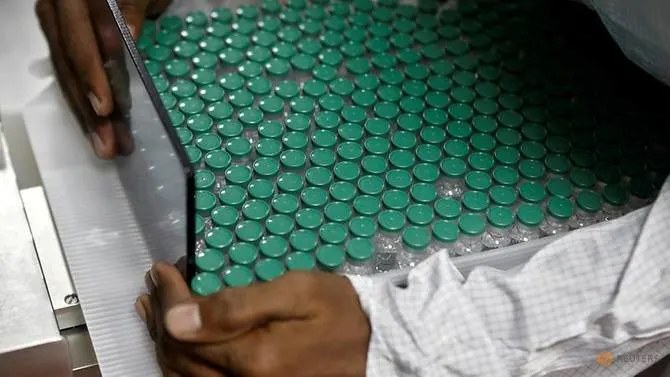India readies for 600 million COVID-19 vaccine jabs; to use regular cold storage
12 December, 2020

India will deploy its vast election machinery to provide 600 million doses of COVID-19 vaccines to the most vulnerable persons in the next six to eight months through conventional cold chain systems, the expert leading the initiative said on Friday (Dec 11).
The government has prearranged cold storage facilities with temperatures between 2 to 8 degrees Celsius, said VK Paul, who heads the group of authorities on vaccine administration for COVID-19 that advises India's Prime Minister Narendra Modi.
Paul said these preparations meet up with the requirements of what he said were the a number of emerging candidates in the race for India's vaccine.
"The four that I can see, including Serum, Bharat, Zydus, and Sputnik want normal cold chain. I see no problem for these vaccines," he told Reuters within an interview.
Serum Institute of India, the world's most significant vaccine maker, is already mass making and stockpiling AstraZeneca's Covishield shot, while Indian biotech players Bharat Biotech and Zydus Cadila are actually growing their own vaccine candidates.
And previous month, Indian pharmaceutical player Hetero inked a cope with Russia's RDIF to manufacture over 100 million doses of the Russian Sputnik V COVID-19 vaccine annually in India.
The federal government expects the first approvals "soon" from the independent medicine regulator for emergency use, he said.
"I am hoping at the initial because we are prepared."
The government, however, was yet to have formal talks on pricing and had no firm purchase orders, he said.
"The Indian companies understand the government will give a fair and reasonable price."
SUPPLIES AND STORAGE
At the moment, Indian regulators are thinking about three vaccines for urgent use authorisation, including those from Pfizer, AstraZeneca and Bharat Biotech.
But, Pfizer's limited stockpiles and its own extreme storage state requirements at minus 70 degrees Celsius or underneath, may likely limit its use found in India, which lacks such infrastructure.
"In a theoretical scenario, where there is absolutely no vaccine with conventional cold chain need, minus 70 degrees Celsius capacities should be created, and we'll do thus," Paul said.
Paul said the government is also in talks with Moderna, which also has requirements for ultra-cold storage.
India will not anticipate supplies from either Pfizer or Moderna before second one half of next yr, said Paul.
"We would just like to utilize them (Moderna) to create that vaccine obtainable in India, and (guarantee) that vaccine is also made in India - for all of us and for different countries. It is the contact we have directed at Pfizer as well and we are in touch with them aswell."
Paul said India may even so consider granting Pfizer crisis use authorisation, despite it all devoid of conducted safety and immune response trials found in India, but said that decision will be taken by the prescription drugs regulator.
"As of now, this is a norm or normal operating technique that any vaccine marketed on India should have human study benefits from the Indian subjects," he said.
India gets the world's second highest caseload of coronavirus behind america, but its death count has been less.
Even now, Paul said the immediate activity was to protect lives and the federal government had prepared an idea to manage vaccines to 300 million persons - or 600 million doses at two jabs each individual - in the first area of the programme.
This would be made up of 260 million people above age 50, around 10 million below the age of 50 with serious co-morbidities and 30 million frontline workers, who've borne the brunt of infections.
"The way it appears as of this moment, optimistically, it appears possible to go over the above population of 300 million in 6 to 8 months' time."
Source:
